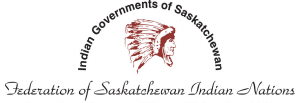FSIN – First Nations Early Childhood Programs Improving Outcomes
Prepared for Federation of Saskatchewan Indian Nations
Shirley Kraus
February 2013
Executive Summary
Children are gifts. (Assembly of First Nations, 2005) They are our most valuable resource. They are our future. Research strongly supports the belief that investing in early learning and childcare greatly contributes to returns in healthy well adjusted children, readiness for school, improved educational outcomes, improved labour market outcomes, and ultimately a more prosperous society. It is established that quality early childhood experiences from birth, learning programs, and child care structures are essential in early childhood development and school readiness.
This report:
- Reviews literature that must inform dialogue, policies, services and programming in the areas of early learning and child care;
- Recognizes the voice of First Nation People as critical in dialogue and in shaping policies, services and programming in the areas of early learning and child care;
- Describes established supports, services, programs that are in place both on and off reserve;
- Identifies and discusses challenges;
- Presents promising practices;
- Discusses opportunities to resource and support early childhood programs and services in order to better serve First Nations children and their families and to improve early childhood outcomes.
The goal is to provide a catalyst to improve early childhood outcomes for First Nations children so as to better prepare them for life long learning, and provide for smoother transitions to formal schooling (school readiness). Challenges that impact services and programs have been identified. Many innovative ways to serve young children and their parents both on and off reserve are presented as promising practices. Creating opportunities to resource and support early learning and building on what we have can only improve outcomes.
Section 1: Literature Supporting Quality Early Learning and Child Care
Investments in early learning and childcare create economic benefits through enhanced opportunities for the child and cost savings for society.
Children’s experiences during early childhood influence their health, behaviour and learning for their entire life. Positive and stimulating experiences with parents, extended family, and community build strong connections in the brain as children learn to talk, to think, walk, adapt, solve problems and get along with others. High quality child care and learning programs; that are nurturing, interactive, and play-based are very important in the development of a child. A lack of quality may compromise learning and development.
Section 2: The Voice of First Nations People –Themes that Provide the Foundation
First Nations people have always believed that child rearing is a sacred responsibility not only for parents but the extended family and the whole community. They share the belief that First Nations have the right and responsibility to design, implement and control programs for their children. Regulations and standards are important but they must reflect the priorities and realities of the community.
Programs must be universal and accessible to all who require the services.
Culture and language form the foundation of early learning experiences. First Nations languages, traditions and values must be embedded in early learning curriculum. Elder involvement is essential. Early childhood programs are natural sites for rejuvenating and retaining First Nations language and culture. Authentic holistic experiential learning, positive interactions with family, other children, Elders, and community prepare young children for school readiness, well being, and life long learning.
Section 3: Early Childhood Services and Programs
Home Visiting Programs
Maternal Child and Health is an on reserve home visiting program whose mandate is to support pregnant woman and families with infants and young children zero to six years of age. The key activities are home visits, integrating cultural values, customs and beliefs into all program components, screening and assessment, case management, health promotion and connecting families to other services.
Kids First a home visiting program operates in targeted areas in the province. Home visitors the cornerstone of this program, accommodate families in learning about early childhood development and parenting skills, support families in connecting with other agencies and support families in accessing needed resources such as housing, transportation, and the food bank.
Early Childhood Intervention Programs (ECIP) are a province- wide network of community-based supports for families of children from birth to age five who experience developmental days or are at risk for developmental delays. Interventionists focus on the strengths of children and their families, build trusting relationships with families and assist families to work towards mutually identified goals for their children. They also provide an important link between families and other service agencies and professionals.
Download full report First Nations Early Childhood Programs Improving Outcomes
NT5
This article comes from NationTalk:
https://nationtalk.ca
The permalink for this story is:
https://nationtalk.ca/story/fsin-first-nations-early-childhood-programs-improving-outcomes
Comments are closed.















